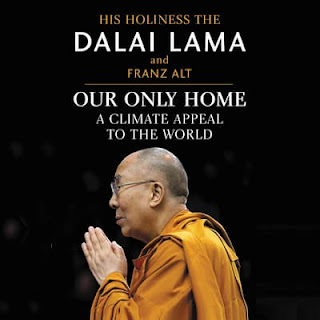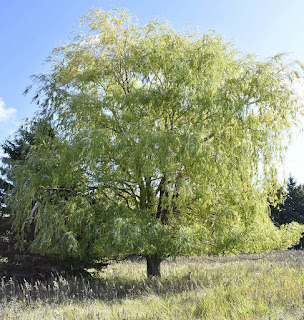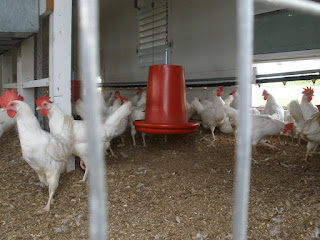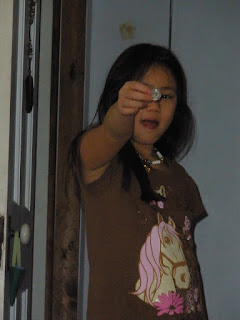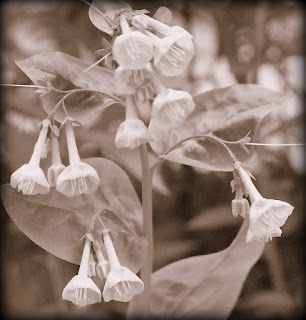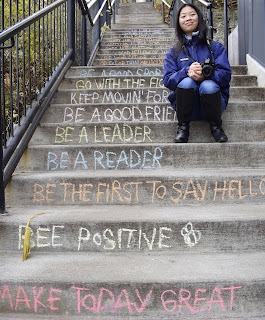The Zero Point Agreement - How to Be Who You Already Are by Julie Tallard Johnson is a book I discovered on Goodreads.
A person I know read it and it looked intriguing. There is a lot of good information in it and I'm glad she posted that she was reading it. Below are the parts of the book I found relevant to me and/or that I wanted to remember.
- We can't follow someone else's hero path. We must pave our own paths through life. We can of course borrow from those who we discern have gone successfully before us, like Christ or Buddha, or poet and pacifist William Stafford, or author and environmentalist Aldo Leopold, who each paved their own way.
- Creativity, inspiration, and all that goes into living a meaningful life come, too, from our ability to distance ourselves from all that limits the expression of our free will.
- When someone or something outside ourselves directs our choices and experiences, we are not living life from our side and we are held captive by this limitation. When limited by our perceived choices for a prolonged stint of time, we become uninspired.
- An enduring lack of inspiration can lead to giving up, addiction, depression, hopelessness, and helplessness. We then get held back, too, by blaming others for our lack of happiness or success.
- People often create their life works from what they want but do not have - like how Jane Austen wrote of romantic love but lacked it in her life. Many poets write about what they long for.
- Let go of the "right and wrong," the dogma, or someone else's way and walk your own life. Write your own story. Paint in your own way.
Out beyond ideas of right-doing and wrong-doing
There is a field
I will meet you there.
- Rumi, 13th century Persian poet
- When we experience ourselves as separate from natural phenomena, from each other, and from ourselves, we tend to "cover up" with the false self. The false self is made up of our pain stories and outdated myths and underlying assumptions, agreements, and beliefs that are linked to our past.
- An undisciplined mind, an inability to stay focused, makes you vulnerable to internal and external distractions. These distractions can ultimately lead you away from your creative and spiritual intentions.
- Everyone knows their calling - it boils down to listening to the call and following it, rather than getting lost in all the distractions.
- Make your own Bible. Select and collect all the words and sentences that in all your readings have been to you like the blast of a trumpet. (Ralph Waldo Emerson)
Your beliefs become your thoughts,
your thoughts become your words,
your words become your actions,
your actions become your habits,
your habits become your values,
your values become your destiny.
- Mahatma Gandhi
- In Buddhist practices, we hold ourselves accountable for how we respond to our circumstances.
I think, at a child's birth, if a mother could ask a fairy godmother
to endow it with the most useful gift,
that gift would be curiosity.
- Eleanor Roosevelt
- To see the new story that may be offering itself up to you (or that is calling to you), you have to release old stories about how things are supposed to be or look.
There is no passion to be found playing small -
in settling for a life that is less than the one you are capable of living.
- Nelson Mandela
- We settle for the comfort in the routine, for what feels familiar, for what we know. Sometimes we settle for what someone else wants for us. Every time we want to create something new, leave behind some old way of being, or challenge ourselves to try something different - resistance arises and we find ourselves on this slippery slope of settling.
- If you are not moving toward your dream, you are settling. So if you claim that nothing out of the ordinary calls to you - you are probably settling.
- Most of us have settled. Maybe not entirely, but in part we have given our time and resources to something or someone that is less than what we want or, more importantly, what we are capable of. We lie to ourselves and say that "this is enough" or "I need to give this more time."
- We settle for less in ourselves and then in others and miss the fulfillment of a vision.
- Dare to give ourselves more time to be creative or dare ourselves to do something larger like change vocations.
What you are comes to you.
- Ralph Waldo Emerson
- The happiest among us are those of us who take risks and are loyal to our spiritual (ethical) and creative commitments no matter the results.
Depression is based on our interpretations of our life situations, our circumstances,
our self-conceptions. We get depressed for not being the person we want to be.
We get depressed when we think we have not been able to
achieve the things that we want to achieve in life.
- Traleg Kyabgon
- Depression is not about you. It affects everyone around you, including your larger community. Self-absorption is not a cure and will result in an even greater sense of isolation.
- Life is constantly in motion and changing, and when we hold on to an old story that is no longer even possible, depression can take root.
- A person who is depressed and angry....they are leaving a large part of their life unlived. Their antidote is simple (but not easy): they need to activate their creative life - take that class, bring out the guitar, write that book, or hold more conversations and take more trips. They need to commit to the active creative life and do so in the open.
- Antidotes to depression: spend time outside in a natural environment. Watch Off the Map.
- A troublemaker can be a person, situation, or event that presents us with some difficulty. When a troublemaker shows up in your life, you have the opportunity to let it pull you away from your creative intentions or use it in your creative and spiritual pursuits.
- Let go of the opinions of others. Typically the threats made by a bully include ruining others' opinions of you, whether explicitly or implicitly. So when you can let go of others' opinions as being meaningful to you, a better fate awaits you.
Public opinion is a weak tyrant compared with our own private opinion.
What a man thinks of himself, that is what determines, or rather, indicates his fate.
- Henry David Thoreau
- The illusion is that "when I get this I will be happy." The focusing illusion includes putting our happiness on outward objects and circumstances and typically looks into the future. There is a lack of creativity involved because we are putting our energy in an illusionary state of when. This illusion forgoes living life from your side because the focus of your happiness is on something outside of yourself.
Most people believe that they would be happier if they were richer,
but survey evidence on the subject of well-being is largely inconsistent with that belief.
- Daniel Kahneman
- If we work hard all day and then give nothing to our spiritual or creative life, or to our relationships for that matter, everyone suffers.
- Clutter is often a manifestation of this agreement to put our creative life on hold. As the piles of paper, waste, and stuff accumulate, it gives us more and more things we have to get to before we can get to our creative lives. Then, the door closes and it is too late.
Good artists copy; great artists steal.
- Pablo Picasso
- You can't live the creative life without borrowing from the dead, or from the living. You must steal shamelessly from those who came before you and those around you now. Then you must make it your own. In making the materials you own you get what you want - a personal and direct experience that is both creative and spiritual.
- A large part of my life's work is to leave behind a truly rich compost pile for those who will live off my life. Whatever we leave behind makes up our compost. Our books, our art, our ideas, our children, our teachings, our attitude, our beliefs, our legacies all go into our life's compost.
- Stealing is different from just copying or plagiarizing others. When you copy, you haven't put yourself into it.
- If we only duplicate what inspires us, nothing truly creative will come of it. Steal what inspires you, then do something inspirational with this association. Make it your own somehow.
The secret to creativity is knowing how to hide your sources.
- Albert Einstein
- Read Steal Like an Artist by Austin Kleon.
- Spiritual activism is the creative act of showing up in intimate and open conversations with everything around you.
- Treating every conversation and interaction as if it were our last invites us to invest more in what we say, and in what we don't say, to each other.
- Have some kind of daily practice (journaling, walking) that reinforces your creative and spiritual life. Don't waste this precious lifetime by putting things off or ignoring the daily call to be active in your spiritual and creative life. Remember, none of us know the day or hour of our death. So let's not be frivolous with the remarkable opportunity of this day.
















